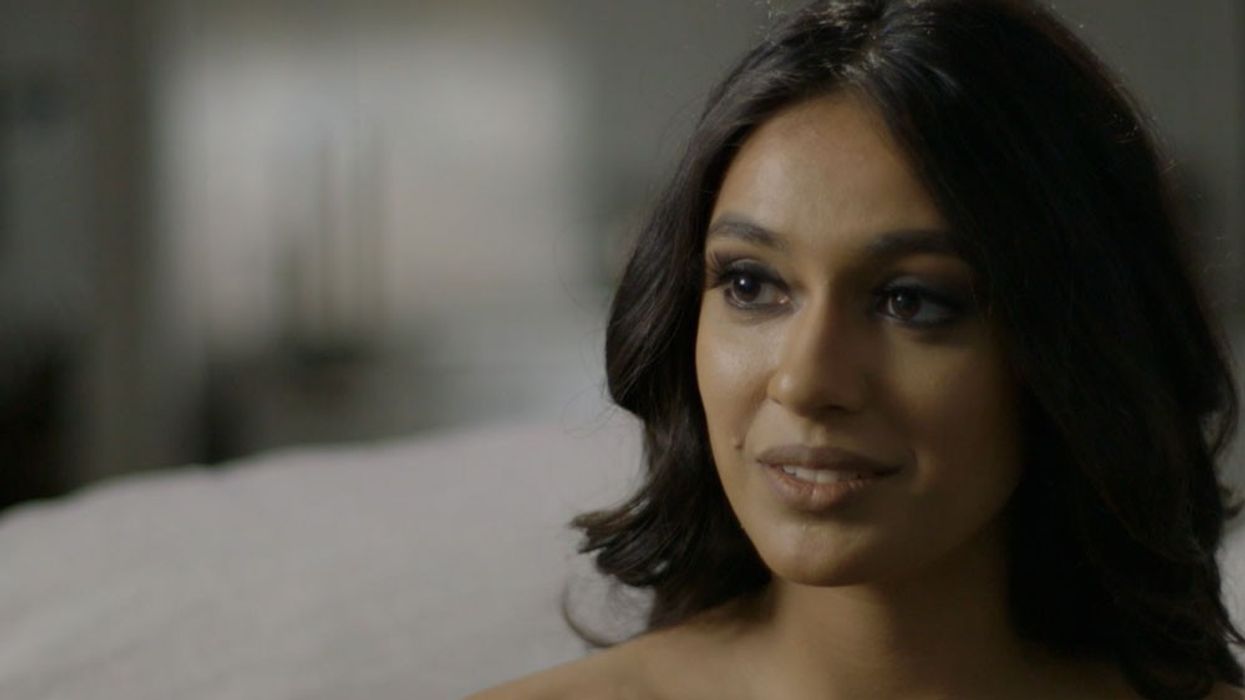How a Micro-Budget Feature Scored Fresh on Rotten Tomatoes, Won Awards, and Got Released
This is how I shot my feature in seven days, and tips you can use for your next project.

Written by Andrew de Burgh
I am a Los Angeles-based filmmaker. Since 2015, I’ve been grateful to have directed short films, VR, animation, and a sci-fi romance feature. This is the story of how my feature The Bestowal surpassed even my high expectations.
After writing and directing a few short films over the years, I was determined to make a feature. I had been fundraising to no avail for a psychological thriller when I started writing a dialogue-driven and philosophical screenplay about a businessman who is visited by an inter-dimensional being.
In this post, I'll encompass valuable lessons I learned at different stages of production in the hope that they may prove useful to fellow filmmakers.
Development and Prep
Write material you are passionate about. If it interests you, it will interest other people.
Also, make sure you write a screenplay you can realistically shoot. I’ve seen many producers over the years (myself included) fail to get funding for films that were too expensive or logistically difficult to shoot. Raising money for films is a brutal task, and you have to make things easier for yourself. For that reason, my screenplay contained just two characters, and the entirety of it was dialogue. The whole film was going to be set in three rooms in the same house.
After reaching a point where I was happy with the script, I struggled, but eventually managed to raise around $18,000 through shamelessly pestering acquaintances, friends, and family. Once I raised the money, I made sure to find a small but experienced crew.
Initially, I wanted to shoot in 4K, but my cinematographer Matt Fore and I eventually decided to shoot in 1080 HD on a Canon C300 using Zeiss Prime lenses.
Because the shoot was only going to be seven days and we were shooting up to 15 pages of challenging dialogue a day, I knew casting highly skilled and passionate actors was going to be pivotal.
Through auditions and callbacks, I was lucky to find and cast Sam Brittan and Sharmita Bhattacharya, who both poured an incredible amount of effort into the film. Before our shoot, I had a full rehearsal day with my actors to make sure they knew more or less what I expected of them. Rehearsals are priceless and can save some time on set.

Production
As a former actor myself, I’m lucky to have an understanding of the craft of acting. This helped in being able to give my actors more effective direction during the shoot. I would advise directors to take acting classes to learn how to understand and effectively speak to actors.
Be willing to go the extra mile for your film. For example, to achieve the low-key lighting look I wanted, one of my PAs spent an entire day before the shoot putting layers upon layers of black trash bags on every single window of the house we were shooting in. This allowed us to control light more effectively.
You might have to wear many different hats to stay within budget. Although I was credited on the film as writer, producer, and director, I was also costume designer, production designer, casting director, and digital imaging technician.
Juggling many hats wasn’t always fun but worth it in the end.

Post-production
Make sure you budget for post, and find a team you can rely on to deliver your vision. Find an editor who is the right fit for the project. Our editor Fernando Viquez and I are both massive fans of Interstellar, which was a major thematic inspiration for the film.
I also made sure to give our composer Marc Timón artistic freedom to express himself with a unique style.
Make sure to polish audio; we hired MelodyGun who did a great job with post-sound on the film.
One overall thing I believe in is to use the momentum of principal photography and take it into post. I’ve seen filmmakers wait months to start post-production, and it can negatively affect the impetus of the film. There’s no time like the present.

Post-post-production
In my opinion, getting a film seen is in its own way almost as important as making the film. You can have an amazing movie sitting on your laptop, but if no one knows about it, it’s sadly not going to find an audience.
Create engaging artwork.
I submitted The Bestowal to hundreds upon hundreds of film festivals. Use FilmFreeway; it’s an amazing site for submissions. If you’re on a budget, there are numerous and really good free festivals you can submit to.
Don’t be discouraged by rejections. I got about 60 of them before we had our first screening! In the end, 10 festivals screened it, and it won four awards, including Best Actress at the Los Angeles IFS Film Festival.
Find festivals that may be interested in something specific you have to offer. Dhaka International Film Festival, one of the most prestigious film events in Bangladesh, screened the film. I imagine having a Bengali-American actress in the film helped!
Politely ask critics and publications if they’ll review your film. During our festival circuit, The Bestowal somehow managed to get a 78% critic score on Rotten Tomatoes. After that, it was picked up by Indie Rights who distributed it on VOD platforms.
Looking back at all of it, I definitely learned a lot and hopefully, I’ll be able to carry that into my next film.
The Bestowal is streaming for free on Tubi and is available to rent/buy on Google Play and YouTube Movies.
Andrew de Burgh is always happy to collaborate with like-minded filmmakers if you want to connect with him on Instagram.











